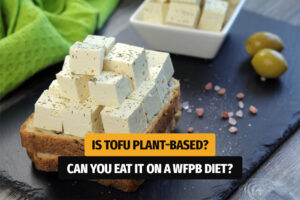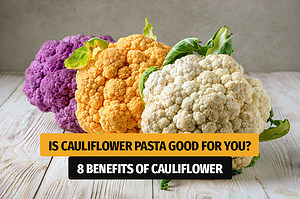
Embarking on a plant-based journey, you might wonder if consuming oils fit into this lifestyle. After all, oils are derived from plants, but are they a healthy choice for a diet primarily consisting of whole, unprocessed foods? In this article, we’ll dive into the world of oils in the context of a plant-based diet.
On the other hand, eating a whole-food, plant-based diet means consuming various fruits, vegetables, whole grains, and legumes while minimizing processed foods, sugars, and oils. That said, you can still consume oils in moderation, as they can be high in fat and calories, potentially affecting your health goals.
Can Plant-based Diets Include Oils?
Yes, you can consume oil while following a plant-based diet. Many people choose to include plant-based oils in their diets for various health benefits and to add flavor to their dishes. However, it is vital to use these oils in moderation and select the most suitable types for your needs.
Types of Oils
Different plant-based oils offer varying nutrients, flavors, and health properties. Some popular and commonly used oils include olive, coconut, and avocado.
- Olive oil: Known for its heart-healthy properties, olive oil is a staple in Mediterranean diets. It is rich in monounsaturated fats and antioxidants that can help lower bad cholesterol (LDL) levels and reduce inflammation.
- Coconut oil: Coconut oil is a versatile option often used in cooking and baking. It contains medium-chain triglycerides (MCTs) that are easily absorbed by the body and can provide a quick energy source.
- Avocado oil: Avocado oil is another excellent source of monounsaturated fats and contains antioxidants. Its high smoke point makes it suitable for grilling and high-heat cooking methods.
Health Benefits and Concerns
Using plant-based oils in your diet can offer various health benefits. For example, monounsaturated fats in olive and avocado oils can help improve heart health and decrease inflammation. Additionally, the MCTs in coconut oil can provide a quick energy source and may aid in weight management.
However, it is essential to consider certain factors before incorporating any oil into your diet. Some oils are high in calories and should be used in moderation to avoid unwanted weight gain. It is also crucial to remember that not all oils are equal – pay close attention to quality and opt for cold-pressed, unrefined oils whenever possible to ensure maximum nutrient retention.
To enjoy the benefits of plant-based oils without overdoing your calorie intake, aim to use them sparingly in your meals, such as in dressings, marinades, or light sautéing.
Why Is There No Oil in a Whole-food Plant-based Diet?
You might wonder why oils are excluded from a whole-food, plant-based diet. The main reason is that oils are not considered whole foods due to their processing methods. While they may be extracted from plants, they lack many beneficial nutrients in whole plants.
When processed, oils lose much of their original fiber, vitamins, minerals, and other important nutrients. Consequently, they become high in calories and fat, which can contribute to undesirable health effects when consumed in excess.
To illustrate the difference in caloric density, let’s compare the following:
- Vegetables: 100 calories per pound
- Fruit: 300 calories per pound
- Nuts: 2,500 to 3,000 calories per pound
- Oil: 4,000 calories per pound
As you can see, oil is far more calorie-dense than any whole plant food. As a result, it may lead to weight gain and disturb the balance of nutrients in your body. On the other hand, whole plant foods contain essential fats, proteins, and carbohydrates in appropriate proportions, promoting better overall health.
Instead of consuming oils, your diet should be based on whole plant foods such as avocados, nuts, seeds, and olives. These foods provide a more comprehensive nutritional profile while keeping your intake of fats and calories in check.
So, when following a whole-food, plant-based diet, remember that it’s best to prioritize consuming whole foods and avoiding processed oils to maintain optimal health and wellness.

What Can You Substitute for Oil in a Plant-based Diet?
When following a plant-based diet, you may wonder what alternatives exist for using oil in your cooking. Luckily, some easy substitutions can be made without sacrificing flavor or the overall culinary experience. Here are some oil alternatives specifically for sautéing and stir-frying:
- Vegetable broth: Use this as a base for sautéing vegetables, adding 1 to 2 tablespoons at a time as needed. Remember to keep the vegetables moving to avoid burning.
- Water: Similar to broth, water can be used in small amounts to prevent sticking while cooking vegetables. Like broth, add more water as it evaporates to keep the food from sticking.
Aside from sautéing and stir-frying, here are a few other tips for cooking without oil:
- When baking, consider applesauce, mashed bananas, or puréed dates as substitutes for oil. These options provide moisture to baked goods and add natural sweetness.
- Use parchment paper, silicone bakeware, or non-stick cookware when possible to reduce the need for oil.
By finding suitable alternatives to oil in your plant-based cooking, you can enjoy the benefits of a whole-food lifestyle and stay true to your dietary choices. Experiment with these oil substitutes and discover new ways to enjoy your favorite recipes without the added fat.
Conclusion
In summary, incorporating oil into your plant-based diet is certainly possible. Remember to choose plant-based oils and consume them in moderation, as they can provide essential dietary fats that play a critical role in various bodily functions.
To ensure the optimal balance, consider incorporating healthy sources of plant-based fats, such as avocados, nuts, and seeds, into your meals.
As you make informed choices on oils and other food items in your plant-based diet, you’ll not only reap the health rewards but also contribute to a more environmentally sustainable way of living. It’s a win-win for you and the planet!








